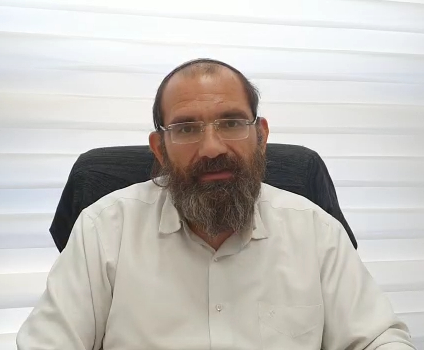Sunday, August 29, 2021, 13:49 The High Court of Justice leveled criticism at the GSS: “It is well that the facts have been clarified and it is regrettable that inaccurate information was submitted at the hearing. One must hope that the correct conclusions have been drawn.”
On August 12, a GSS representative made a false declaration at a High Court of Justice hearing and submitted false information which influenced the justices’ decision. The hearing was on the request by A., who is under administrative house arrest, to go on a one-day trip to the north of Israel with his family. The GOC of the Home Front Command, Major-General Ori Gordin, denied the request, and then Yado filed a petition with the High Court of Justice. At the hearing, a GSS representative claimed that a different request by A., to fly to Uman for Rosh HaShana, had been authorized, which rendered the hearing on the day trip in Israel redundant. The High Court of Justice accepted this claim, and the justices refused to allow A. a trip to the north of Israel with his family.
However, A. had not been informed of authorization to fly to Uman. After the hearing, Yado sent a question to the security authorities about the authorization, and was answered that the authorization for the trip to Uman had been written on the day of the hearing, whether before or after the hearing was not specified. The authorization was signed and given to A. three days later. With the reply, the security authorities included an apology for the error in the declaration they had submitted to the court.
Yado submitted a response to the High Court of Justice claiming that the notification by the security authorities is inexplicable. According to Yado, their declaration was mendacious twice, once by stating that the decision (to authorize the trip to Uman) had been made, and a second time by stating that A. had been informed of the decision.
“The declaration was made without a factual basis and without supporting documents, which should have been its foundation. On what did the authority who transferred the notification rely? On a rumor? Who spread the rumor? And why? Is there not a need to verify a rumor before declaring that it is true, especially when it concerns a technical verification of the authorization from the respondent?
“This is an error which cannot be allowed to be made, or at least its occurrence cannot be accepted. This error distorted the integrity of the process of the hearing, and caused damage to my client,” stated Yado.
Yado added that the false declaration regarding the petition against the administrative order is especially serious: “This is the only type of order which violates fundamental freedoms over which there is no judicial review whatsoever. And in the petition against the above-mentioned order, the security authorities declared a false declaration. If with this declaration, which is the simplest and most technical type, trust in the security authorities failed, then what can we say about the trust that should be given to the orders themselves, which are not subject to any review?” wondered Yado.
Additionally, Yado claimed that there is a lack of balance between the sides in the case: “On one side there are the security authorities, and on the other there is the petitioner, who, according to the case summary, is on the fringes of the extreme right-wing.” Yado reported that he felt a lack of balance during the hearing, and when representatives of the security authorities declared that approval for the trip had been given, he did not imagine that the authorization had not been transferred at all.
“The court must not show favoritism with regard to the respondent. It has already been ruled, more than once, that the approach to the security authorities must be cautious respect, and there is no need to elaborate. On the contrary, in light of the inherent trust the rule of law has in the security authorities, one must not be lenient with them when this trust has been violated. And in this case the trust was violated in an inexplicable and harmful manner.”
At the end of his response, Yado requested that the ruling be corrected to clarify the sequence of events in the proceedings, and to obligate the respondent to legal fees “to express a message for the future and a correct expression of the procedural damage that was caused to the petitioners and their attorneys at the hearing.”

